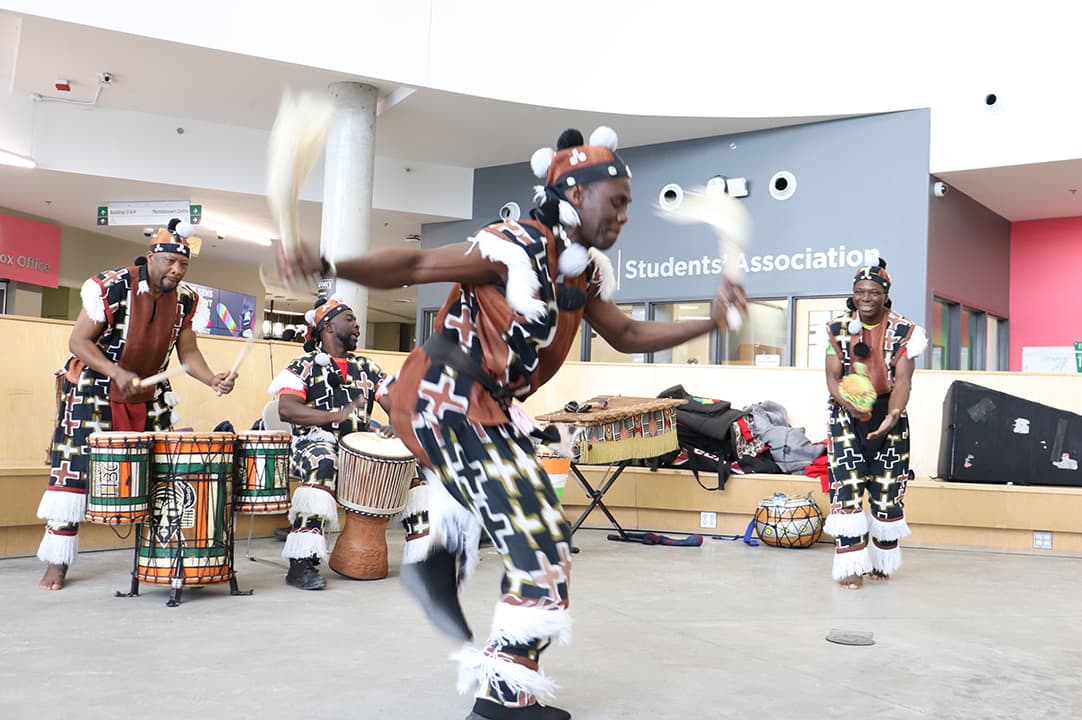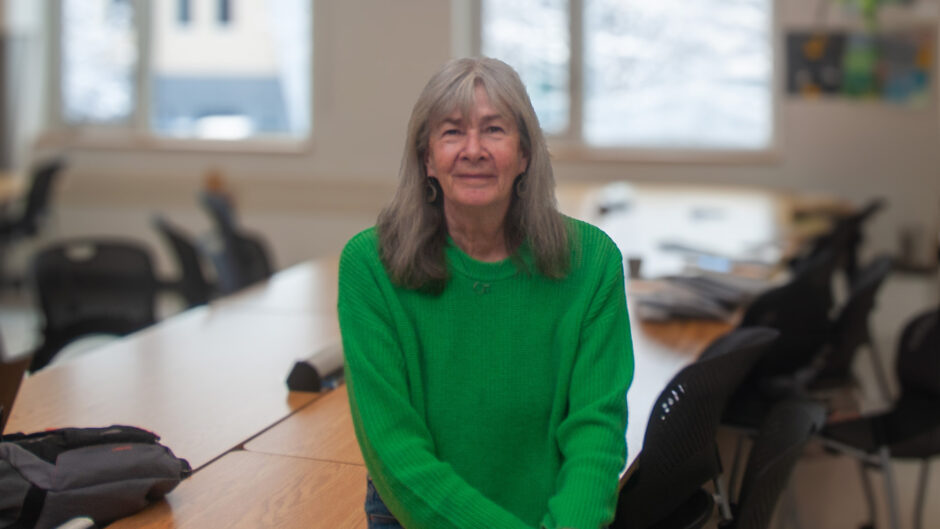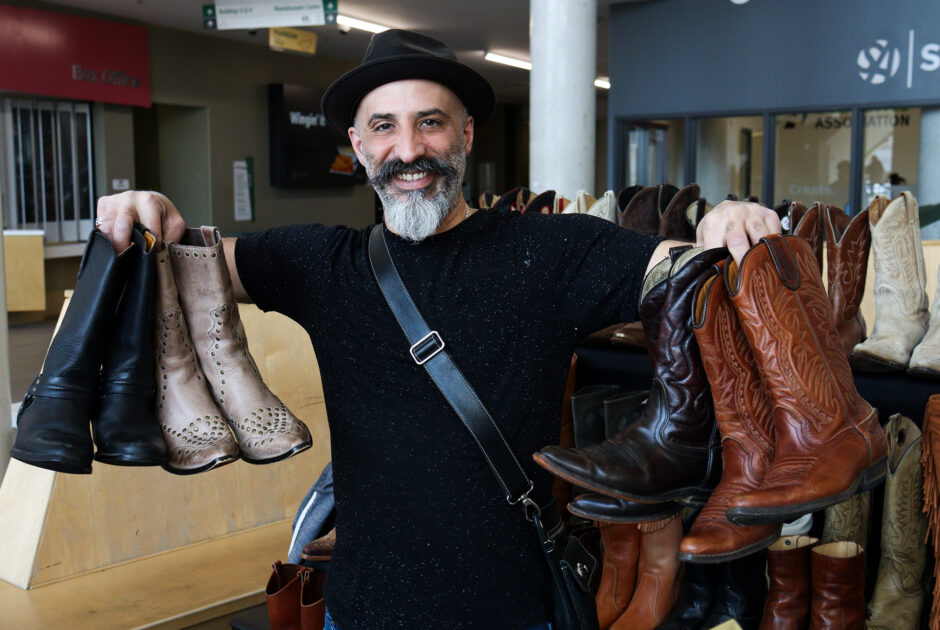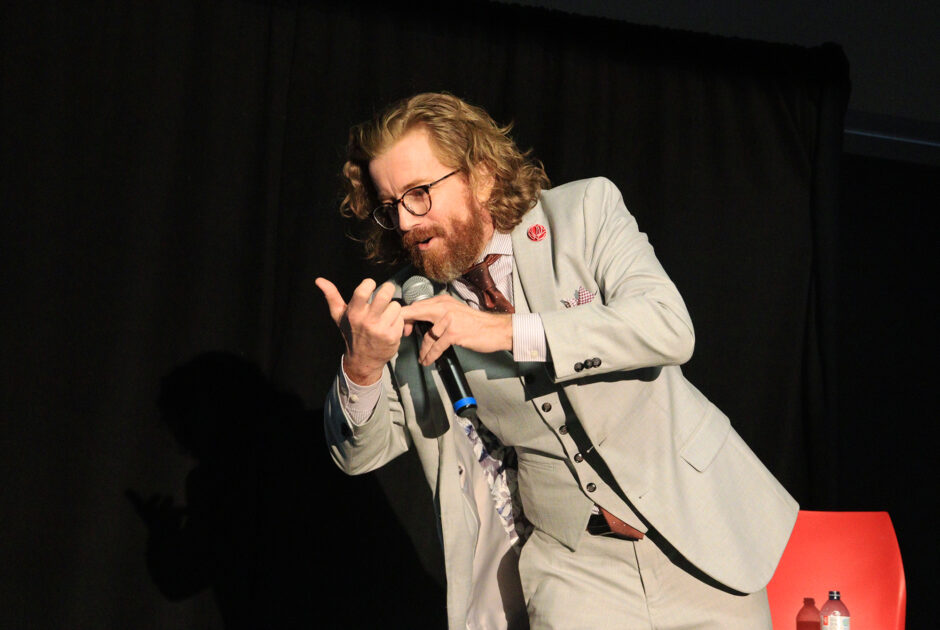Masabo offers a blissful one-hour escape in the Student Commons

A long time ago, there lived a village man who was given the wisdom of the entire world. He greedily kept it for himself. He decided to put it all in his calabash – a container – on top of the coconut tree. He then tied this calabash in front of him and instructed his son to wait at the bottom.
His son reminded him to put the container on his back so it wouldn’t break. The father, however, threw the calabash against the tree, furious that his little child was smarter than he is. The calabash broke and all the wisdom inside reached the entire universe.
Algonquin College’s audience listened attentively to this African fable on wisdom told by Masabo performer, Jean Pierre Makosso on Feb. 7 in the Student Commons.
Masabo, literally the house of the wise, is where villagers in West Africa come to receive advice. During the Masabo shows, stories precede music and dance.
Makosso’s story opened an event that would go on to see students jump and swirl to a feast of traditional dance and stories from West Africa. It was also the first of five events taking place to honour Black History Month.
“Black History Month is not just about what happened in the past,” said Shurouq Kamleh, a second-level pre-health program student. “Sharing the love through dance is such a powerful way to convey a message.”
Originally from the tribe of Senoufou in Ivory Coast, Fana Soro is a master of the balafon, a xylophone, and the group’s founder. After touring the world, he settled in Vancouver in 1997. He then moved to Ottawa in 2009 where he started Masabo musical group.
“The new generations abroad do not get to see such shows,” said Soro. “They give them an idea and ignite their curiosity about our life celebration, our roots and traditions. It is an opportunity for us to bring our culture to celebrate, represent and reconnect with Africa.”
Around 40 students witnessed an array of traditional dances and sound for the performance Celebrate Africa with Masabo. Each artist on his instrument got their share of the spotlight and took the lead in one of the dances.

Passersby stopped at the sight of the drums, djembe and colourful clothes. They listened to the stories of Makosso and Soro and at intermissions, the performers would talk to students about the joy of Africans and the cultural heritage of Africa.
They explained that culture welcomes them to be performers too. Some of the students would then join them on the stage to dance and move to the beats.
“Anyone who can walk, can dance,” said Soro, to the audience.
During the performance, Soro encouraged the whole audience to participate in group choreography.
Kamleh, who attended the whole event, was not only entertained by the event.
“The men’s demeanor and the audience share the energy and the love,” Kamleh said.
Celebrating Africa should happen every day, not just in February, explained Makosso during the performance.
Students, too, need the college to offer more resources for such cultural events to thrive according to Elsie Akuzwe, an African Student Alliance board member. However, Akuzwe also trusts the Students’ Association to handle events like this well. They do a good job of connecting them to a general audience.

Sylvane Muyoboke, a level-one practical nursing student, would like to see more.
“Students want to learn about the culture, but they lack the resources,” said Muyoboke. “It would be cool if we could have an African club. The college can provide them a platform to educate others on their cultures.” For Muyoboke, music and movies are just a part of the culture.
Sofia Gbadamosi, a level-two practical nursing student, says African cultures are so varied at Algonquin College.
“Music and movies are a start,” said Leila Simplice, a second-year interior design student. “If the different Black communities on campus also participated and showed their own cultures, I feel like that would be really nice.”









